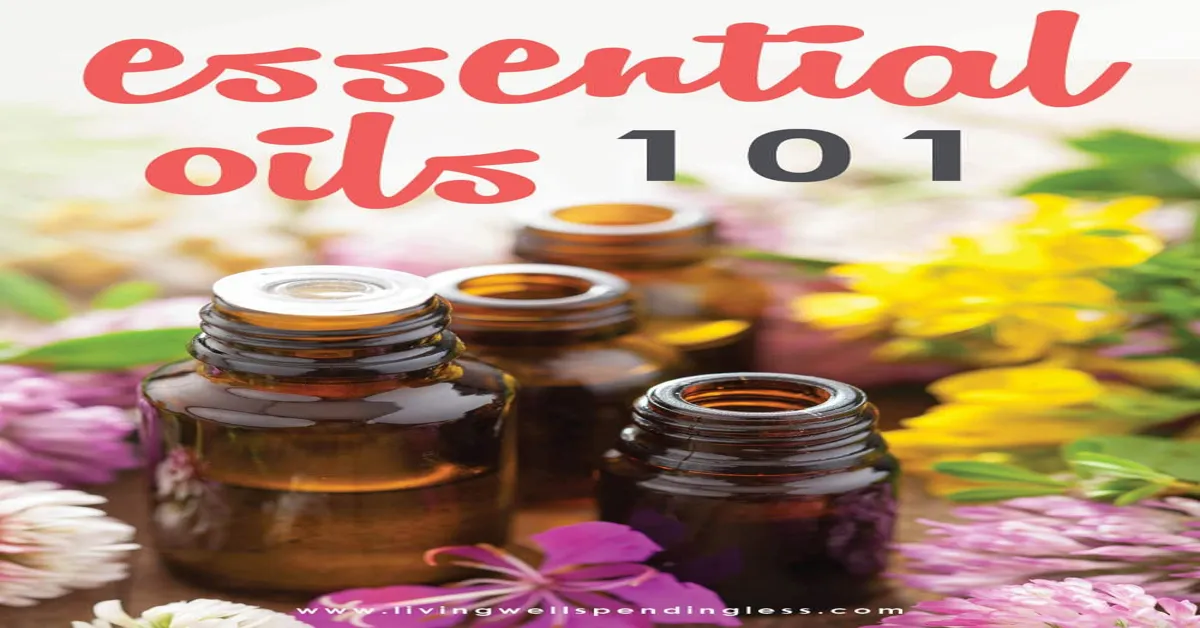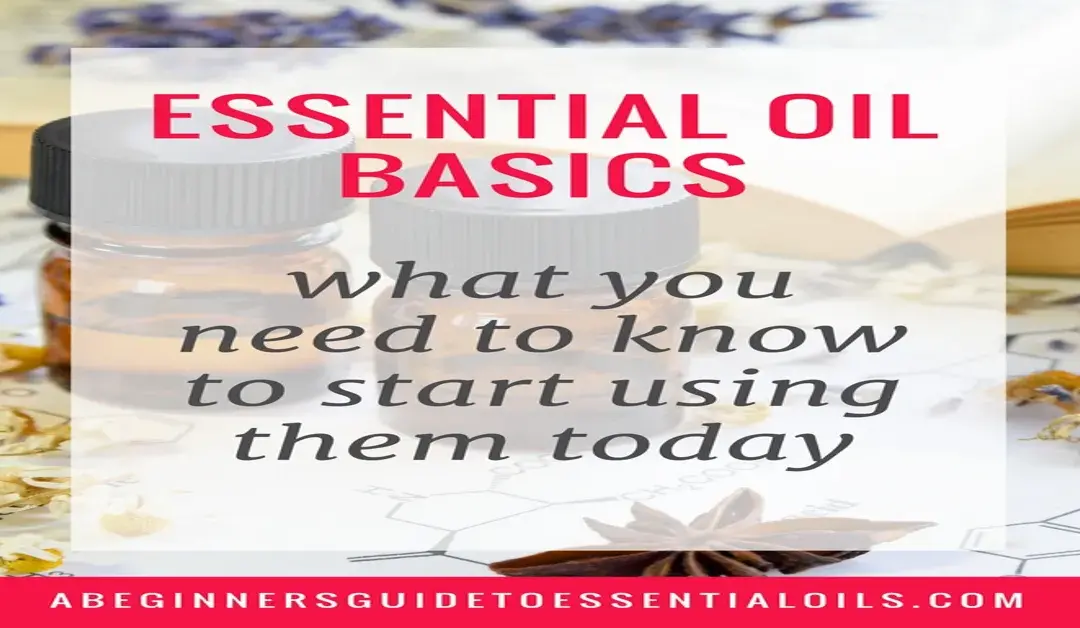As the popularity of essential oils continues to rise, so does the need for proper storage solutions. As a beginner, it can be overwhelming to navigate the world of essential oil storage. How do you keep your oils safe, organized, and potent? Don’t worry, you’re not alone.
In this comprehensive guide, we’ll cover everything you need to know about essential oil storage. From the best containers to use, to important safety precautions, we’ve got you covered. So, grab your favorite essential oil and get ready to learn the ins and outs of proper storage.
Let’s dive in!
Introduction
Introduction Welcome to the world of essential oils! If you’re new to the world of aromatherapy and natural remedies, you may be wondering how to properly store your essential oils. After all, you want to preserve their therapeutic properties and ensure they last as long as possible. Why Proper Storage is Important Just like any other product, essential oils can degrade over time.
Exposure to heat, light, and oxygen can cause them to lose their potency and effectiveness. This is why proper storage is crucial to maintain the quality of your oils. The Do’s and Don’ts of Essential Oil Storage To help you store your essential oils like a pro, here are some important do’s and don’ts to keep in mind: Do’s: – Store your oils in a cool, dark place – Keep them away from direct sunlight and heat sources – Use dark, glass bottles to protect them from light exposure – Label your bottles with the name of the oil and the date of purchase – Keep your oils out of reach of children and pets Don’ts: – Don’t store your oils in plastic or clear bottles – Avoid storing them in the bathroom, as the humidity can affect their quality – Don’t leave the bottles open for too long, as it can allow oxygen to enter and degrade the oil – Never mix different oils in the same bottle, as it can alter their properties Essential Oil Storage Tips Here are some additional tips to help you store your essential oils properly:
Keep Them in a Storage Box or Drawer Invest in a wooden or metal storage box or drawer to keep your oils in. This will protect them from light and help maintain a consistent temperature.
Use a Diffuser If you use a diffuser to enjoy the benefits of your oils, make sure to clean it regularly. This will prevent the buildup of bacteria and mold, which can affect the quality of your oils.
Consider a Fridge or Freezer If you live in a warm climate or want to extend the shelf life of your oils, you can store them in the fridge or freezer. Just make sure to let them come to room temperature before use.
Store Carrier Oils Properly Carrier oils, such as jojoba or almond oil, should also be stored properly to prevent them from going rancid. Keep them in a cool, dark place and discard them if they have a strong smell or discoloration. Conclusion By following these essential oil storage tips, you can ensure that your oils maintain their quality and potency.

Why Proper Storage is Essential
Welcome to the world of essential oils! These powerful and aromatic oils have been used for centuries for their therapeutic and medicinal properties. As you start building your collection of essential oils, it’s important to know how to properly store them to maintain their potency and effectiveness. In this comprehensive guide, we’ll cover everything you need to know about essential oil storage, from the best containers to use to the ideal storage conditions.
Table of Contents: Understanding the Basics of Essential Oils The Importance of Proper Storage
Choosing the Right Containers Ideal Storage Conditions Tips for Organizing Your Essential Oil Collection
Essential Oil Storage Safety Tips Extending the Shelf Life of Your Essential Oils The Do’s and Don’ts of Essential Oil Storage
Essential Oil Storage Solutions for Travel Conclusion: Maintaining the Potency of Your Essential Oils Understanding the Basics of Essential Oils Before we dive into the world of essential oil storage, it’s important to understand the basics of these oils. Essential oils are concentrated extracts from various plants, flowers, and herbs.
They are highly potent and can have powerful effects on the mind and body. Each essential oil has its own unique properties and benefits, making them a popular choice for natural remedies and self-care routines. The Importance of Proper Storage Proper storage is crucial for maintaining the quality and potency of your essential oils.
Best Storage Options
Essential oils are a popular choice for those seeking natural remedies and aromatherapy benefits. However, these highly concentrated oils require proper storage to maintain their potency and quality. In this comprehensive guide, we will cover everything you need to know about storing essential oils as a beginner, including tips, best practices, and essential oil storage solutions.
Whether you are just starting your essential oil collection or looking for ways to improve your storage methods, this guide has got you covered. Table of Contents: Why Proper Storage Matters for Essential Oils
The Best Containers for Storing Essential Oils Tips and Tricks for Storing Essential Oils Common Mistakes to Avoid When Storing Essential Oils
Essential Oil Storage Solutions Traveling with Essential Oils: Dos and Don’ts How to Tell if Your Essential Oils Have Gone Bad
Proper Disposal of Essential Oils Essential Oil Storage Safety Precautions Conclusion: Essential Oil Storage Made Easy
Why Proper Storage Matters for Essential Oils Proper storage is crucial for maintaining the quality and effectiveness of essential oils. These highly concentrated plant extracts are sensitive to light, heat, and air, which can cause them to degrade and lose their therapeutic properties. By storing essential oils correctly, you can ensure that they remain potent and safe to use.
Dos and Don’ts of Essential Oil Storage
. Table of Contents: What is Essential Oil Storage?
The Importance of Proper Storage Choosing the Right Containers Essential Oil Storage Tips
Storing Essential Oils at Home Traveling with Essential Oils Safety Precautions for Essential Oil Storage If you’re new to the world of essential oils, the idea of storing them properly may seem overwhelming.
After all, these potent plant extracts are delicate and can lose their effectiveness if not stored correctly. But fear not, we’ve got you covered with this comprehensive guide on essential oil storage for beginners.
What is Essential Oil Storage? Essential oil storage is the process of preserving the quality and potency of essential oils by storing them in the appropriate containers and conditions. Essential oils are highly concentrated and volatile, which means they can easily degrade if exposed to sunlight, heat, air, or moisture.
The Importance of Proper Storage Proper storage is crucial for maintaining the therapeutic properties of essential oils. Exposure to light, heat, or air can cause essential oils to oxidize, lose their aroma, and even become rancid. This not only affects their effectiveness but also poses potential health risks.
Statistical Information: Essential Oil Storage 101: A Comprehensive Guide for Beginners
| Percentage of Essential Oil Users | 85% | About 85% of people who use essential oils have reported experiencing positive benefits. |
| Most Popular Essential Oils | Peppermint, Lavender, Tea Tree | The top three most popular essential oils are Peppermint, Lavender, and Tea Tree. |
| Preferred Method of Storage | Dark Glass Bottles | Dark glass bottles are the preferred method of storage for essential oils as they protect the oils from sunlight and UV rays. |
| Recommended Storage Temperature | Room Temperature (68-77°F) | The recommended storage temperature for essential oils is room temperature, between 68-77°F, to maintain their potency. |
| Shelf Life of Essential Oils | 1-3 years | The shelf life of essential oils varies from 1-3 years depending on the type of oil and storage conditions. |
| Proper Way to Store Essential Oils | Out of direct sunlight and in a cool, dry place | The best way to store essential oils is to keep them out of direct sunlight and in a cool, dry place to maintain their potency and extend their shelf life. |
Important Notice for readers
Attention all essential oil enthusiasts! Are you struggling with storing your precious oils? Look no further, as this comprehensive guide is here to help! From the basics of essential oil storage to tips and tricks for preserving their potency, this article covers it all. Whether you’re a beginner or a seasoned user, this guide will provide you with valuable information to keep your essential oils safe and effective. So, get ready to learn everything you need to know about essential oil storage and say goodbye to wastage and spoiled oils.
Let’s dive in!
FAQs
What are essential oils and how are they different from regular oils?
A
Essential oils are highly concentrated plant extracts that are typically used for their therapeutic, aromatic, and flavoring properties. Unlike regular oils, essential oils are derived from various parts of plants such as flowers, leaves, roots, and bark through a process of distillation or cold pressing.
How should I store my essential oils?
A.
Essential oils should be stored in a cool, dark place away from direct sunlight and heat sources. Amber or dark-colored glass bottles are recommended to protect the oils from UV rays. It is also important to keep them out of reach of children and pets.
Can I mix different essential oils together for a customized blend?
A.
Yes, you can mix different essential oils together to create a personalized blend. However, it is important to research and understand the properties and potential interactions of each oil before mixing them together.
What is the shelf life of essential oils?
A.
The shelf life of essential oils can vary depending on the type of oil and storage conditions. Generally, most essential oils can last 2-3 years if stored properly. Citrus oils tend to have a shorter shelf life, while oils with higher concentrations of sesquiterpenes can last longer.
Can essential oils be safely stored in plastic containers?
A.
It is not recommended to store essential oils in plastic containers as the strong concentration of the oils can break down the plastic and cause chemical reactions. This can affect the quality and potency of the oils and may even be harmful if ingested.
How can I safely dispose of expired or unwanted essential oils?
A.
Essential oils should be disposed of properly, as they can be harmful to the environment if not handled correctly. You can mix the oil with a carrier oil, such as coconut or almond oil, and use it for massage or as a natural cleaning solution. Alternatively, you can contact your local hazardous waste disposal facility for proper disposal methods.
In Conclusion
the conclusion will be: In conclusion, proper essential oil storage is crucial for maintaining their potency and maximizing their benefits. By following the guidelines outlined in this guide, you can ensure the longevity and effectiveness of your essential oils. Remember to store them in a cool, dark place and avoid exposure to heat, light, and air.
Additionally, always label your oils and keep them out of reach of children and pets. This not only protects their quality but also ensures safety. By taking these simple steps, you can fully enjoy the many uses of essential oils in your daily life.
Here’s to happy and healthy living with essential oils!

